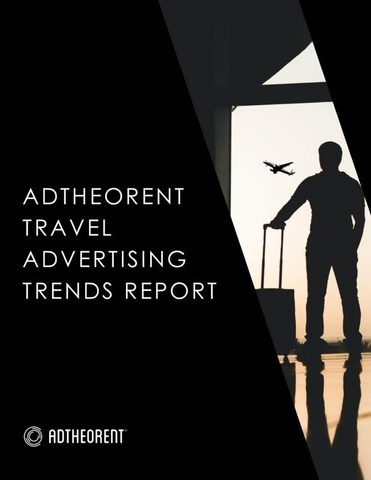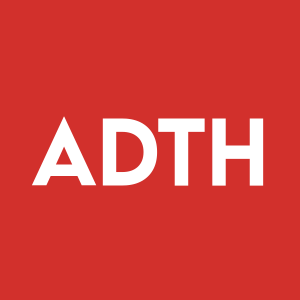AdTheorent Travel Advertising Trends Report Shows More than Half (57%) of 2022 Travelers Consider Themselves "Revenge Travelers" and 83% Plan to Splurge on Travel Expenses this Year
AdTheorent has released its Advertising Trends Report, revealing that 82% of travelers use digital devices for trip research and 77% for booking. A notable 57% consider themselves 'revenge travelers,' eager to make up for lost time due to the pandemic, with 83% planning to splurge on travel expenses. The report emphasizes the effectiveness of tailored ads, showing that relevant ads boost brand perception and increase destination visits. Additionally, immersive ad formats, like 360-degree videos, significantly impact consumer actions, suggesting a pivotal shift in digital advertising for travel brands.
- None.
- None.
Insights
Analyzing...
AdTheorent/Harris Poll Survey Data Shows That the Majority of Travelers Use Their Digital Devices to Research and Book Travel and that Advanced, Tech-Forward Approaches to Advertising Creative Have High Success at Driving Consumer Actions
NEW YORK, June 16, 2022 /PRNewswire/ -- AdTheorent Holding Company, Inc. ("AdTheorent" or the "Company) (Nasdaq: ADTH), a leading programmatic digital advertising company using advanced machine learning technology and privacy-forward solutions to deliver measurable value for advertisers and marketers, today announced results from the AdTheorent Advertising Trends Report (now available for download here), based on research conducted online on behalf of AdTheorent by The Harris Poll among more than 2,000 U.S. adults. The AdTheorent Report identifies key trends related to consumers' interaction with digital advertising during the travel journey, as well as the importance of proper targeting and ad relevance. Advertisers should note that relevant or tailored ads create brand equity for a travel company and drive increased visitation to travel destinations.bConversely, irrelevant ads can have the opposite effect, causing consumers to have a less favorable opinion of the travel company, and making them less likely to visit a destination.
According to the U.S Travel Association, total travel spend in April of 2022 was
DIGITAL DEVICES LEAD THE WAY: Digital dominates the travel journey and the majority of travelers have booked a vacation because of ads, with digital ads proving most effective
- A majority of travelers overall (defined as those who have been on a vacation that required at least one overnight stay) use digital devices to research (
82% ) and book (77% ) their trips, and they are using digital devices for everything from lodging to activities - Over two thirds of travelers (
69% ) have booked a vacation that required at least one overnight stay as a result of an ad they saw, and more than half (53% ) have been motivated to book by digital ads;24% have been motivated by digital ads including a coupon or special offer and23% have been motivated by digital ads that are personalized. - Types of ads, by device or medium, that motivate consumers to engage:
- Computer ad:
37% - Mobile device ad:
35% - Live TV ad:
19% - Email from travel company:
15% - Magazine ad:
14% - Streaming service TV ad:
13% - Newspaper ad:
11% - Billboard ad:
8%
TAILORED ADVERTISING WORKS: Relevant and personalized ads drive positive opinions and bookings:
- Relevant or tailored ads can create brand equity and increased foot traffic at travel destinations, while ads that are not relevant to consumers can have the opposite effect:
72% : Receiving an advertisement that is relevant or tailored to me (i.e., personalized based on things like location, travel history, preferences, etc.) from a travel company would make me more likely to visit the destination being advertised.69% : Receiving an advertisement that is relevant or tailored to me (i.e., personalized based on things like location, travel history, preferences, etc.) from a travel company would cause me to have a more favorable opinion of that company.56% : Receiving a random advertisement that is not relevant to me from a travel company would cause me to have a less favorable opinion of that company.53% : Receiving a random advertisement that is not relevant to me from a travel company would make me less likely to visit the destination being advertised.
ADVERTISING CREATIVE MATTERS: Immersive and engaging digital ad experiences drive action
- Advanced, tech-forward approaches to creative have high success at driving consumer action as the majority of travelers surveyed cite various ad formats that would spark action from them, such as researching an advertised destination or considering it for a future trip. At least three quarters of travelers would be likely to take action as a result of seeing various unique creative digital ad formats featuring a travel destination. Actions most likely to be influenced by creative ad format include:
- If served a 360-degree video ad (i.e., an immersive and interactive video ad that makes a user feel like they're in the destination and allows them to explore different elements of the destination):
81% would likely take action44% would research the destination40% would consider it for a future trip38% would interact with the ad to learn more29% would tell a friend or family member about it- If served a predictive creative ad (i.e., a digital ad that is completely customized specifically for a user, from colors to creative elements and content):
75% would take action39% would research the destination38% would consider it for a future trip34% would interact with the ad to learn more27% would tell a friend or family member about it- If served a 4-way swipe ad (i.e., an ad that allows the viewer to explore different activities, food options, events and things to do in a destination via swiping within the ad):
76% would take action40% would research the destination38% would interact with the ad to learn more36% would consider it for a future trip26% would tell a friend or family member about it
NEW TRAVEL STYLES ARE EMERGING: Travelers are interested in new types of travel as well as emerging technologies
- Travelers are interested in the following types of travel:
79% : Microcation (i.e., a short leisure getaway, no more than 4 nights)69% : Second city travel (i.e., traveling off the beaten path, swapping a destination for a lesser known but similar alternative)67% : Ancestry travel (i.e., visiting a destination based on family history/roots)67% : Cash-free travel (i.e., traveling without cash)54% : Solo travel (i.e., going on vacation alone)54% : Motion-based travel (i.e., trips that involve motion and physical activities such as biking or cycle-based trips, bike to boat vacations, swim tours, etc.)54% : Eco tourism (i.e., travel that conserves the environment and improves the well-being of local people including carbon credits when booking a flight, renting an electric vehicle, volunteering, etc.)51% : Group retreat travel (i.e., wellness retreat, corporate retreat, music festival)46% : Bleisure travel (i.e., combining business and leisure travel in one trip)- Travelers are also interested the following emerging technologies that can enhance the travel experience:
66% : Virtual guides for tourism (i.e., a virtual guide that can be accessed via a mobile device to provide information about a destination, such as nearby activities, restaurants, and attractions)66% Smart hotel rooms (i.e., a hotel room that includes 'smart' electronic devices to help guests do things such as control lights, temperature, tv, etc.)64% Digital ID (i.e., adding a driver's license/state ID to a smartphone digital wallet to use as ID while traveling, for example at TSA checkpoints)60% Biometric check-in at airports (i.e., using facial recognition technology to check-in at gate and board a flight instead of using a boarding pass or mobile device to check-in)60% Recognition technology at hotels (i.e., using biometrics, such as facial, voice or fingerprint recognition, to make guest interactions like checking in at hotels, opening hotel room doors, paying for stuff at the hotel more efficient)51% Internet chatbots while booking travel (i.e., to assist with the travel booking and reservation process or to help find and book tours/excursions)50% Robot concierges (i.e., either a physical robot or virtual assistant that sits at the hotel reception desk to assist guests such as providing info on nearby attractions, booking activities, serving food/drinks)
HOLIDAY TRAVEL: How and when consumers are researching
Digital and online methods lead the way when it comes to researching holiday travel destinations with
39% Travel booking websites37% Word-of-mouth (i.e., talking to people who have traveled to my destination)34% Travel review websites34% Social media30% Destination-specific websites26% Other websites/online resources19% Destination guidebooks15% Worked with a travel agent12% Government agency websites
"AdTheorent's Travel Advertising Trends Report shows that consumer interest in travel has rebounded enthusiastically, and that properly targeted and well-executed digital advertising can be a key driver of consideration and booking for travel brands such as destinations, airlines, cruise lines, hotels, restaurants, attractions and more," said Jim Lawson, CEO of AdTheorent. "At AdTheorent, we use privacy-forward machine learning and data science to drive superior digital ad campaign performance for travel brands – measured by tangible business outcomes such as travel bookings, online and offline sales, as well as deep-funnel site actions. We commissioned this research by the Harris Poll to gain consumer-provided insights into travel decisioning and bookings to further inform client strategies and we are excited to share the results."
To view and download the AdTheorent Travel Advertising Trends Report, please visit: info.adtheorent.com/travel-trends
About AdTheorent
AdTheorent (Nasdaq: ADTH) uses advanced machine learning technology and privacy-forward solutions to deliver impactful advertising campaigns for marketers. AdTheorent's machine learning-powered Platform A\T powers its predictive targeting, geo-intelligence, audience extension solutions and in-house creative capability, Studio A\T. Leveraging only non-sensitive data and focused on the predictive value of machine learning models, AdTheorent's product suite and flexible transaction models allow advertisers to identify the most qualified potential consumers coupled with the optimal creative experience to deliver superior results, measured by each advertiser's real-world business goals.
AdTheorent is consistently recognized with numerous technology, product, growth and workplace awards. AdTheorent was awarded "Best AI-Based Advertising Solution" (AI Breakthrough Awards) for four consecutive years and "Most Innovative Product" (B.I.G. Innovation Awards) for five consecutive years. Additionally, AdTheorent is the only six-time recipient of Frost & Sullivan's "Digital Advertising Leadership Award." AdTheorent is headquartered in New York, with fourteen offices across the United States and Canada. For more information, visit adtheorent.com.
The AdTheorent Travel Advertising Trends Report Survey Methodology:
These surveys were conducted online within the United States by The Harris Poll on behalf of AdTheorent November 10-12, 2021 among 2,039 US adults ages 18 and older, among whom 1,873 are travelers, and May 17-19, 2022 among 2,015 US adults ages 18 and older, among whom 1,691 are 2022 travelers and 1,578 are holiday travelers. The sampling precision of Harris online polls is measured by using a Bayesian credible interval. For this study, the sample data is accurate to within + 2.8 percentage points using a
About The Harris Poll:
The Harris Poll is one of the longest running surveys in the U.S. tracking public opinion, motivations and social sentiment since 1963 that is now part of Harris Insights & Analytics, a global consulting and market research firm that delivers social intelligence for transformational times. We work with clients in three primary areas; building twenty-first-century corporate reputation, crafting brand strategy and performance tracking, and earning organic media through public relations research. Our mission is to provide insights and advisory to help leaders make the best decisions possible. To learn more, please visit www.theharrispoll.com
![]() View original content to download multimedia:https://www.prnewswire.com/news-releases/adtheorent-travel-advertising-trends-report-shows-more-than-half-57-of-2022-travelers-consider-themselves-revenge-travelers-and-83-plan-to-splurge-on-travel-expenses-this-year-301569505.html
View original content to download multimedia:https://www.prnewswire.com/news-releases/adtheorent-travel-advertising-trends-report-shows-more-than-half-57-of-2022-travelers-consider-themselves-revenge-travelers-and-83-plan-to-splurge-on-travel-expenses-this-year-301569505.html
SOURCE AdTheorent








